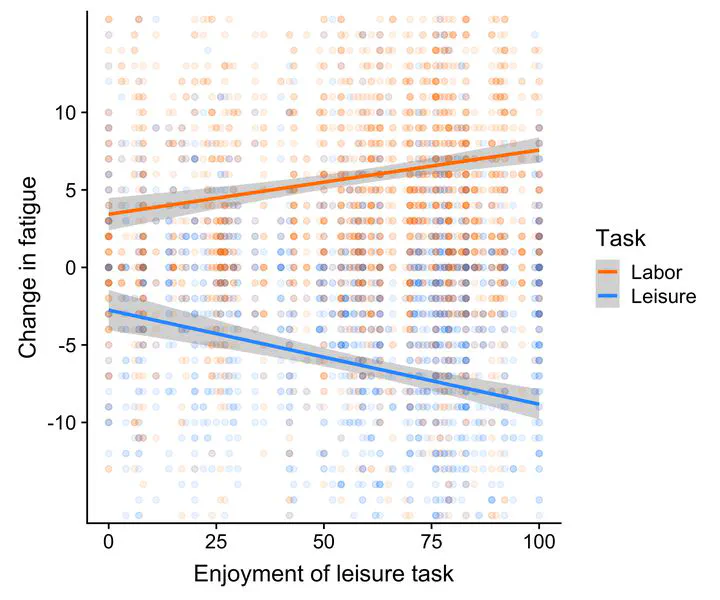The effect of opportunity costs on mental fatigue in labor/leisure trade-offs
Dec 1, 2022· ,,,,·
0 min read
,,,,·
0 min read
Jonas Dora
Madelon Van Hooff
Sabine Geurts
Michiel Kompier
Erik Bijleveld
 Image credit: Jonas Dora
Image credit: Jonas DoraAbstract
Most people experience the feeling of mental fatigue on a daily basis. Previous research shows that mental fatigue impacts information processing and decision making. However, the proximal causes of mental fatigue are not yet well understood. In this research, we test the opportunity cost model of mental fatigue, which proposes that people become more fatigued when the next-best alternative to the current task is higher in value. In 4 preregistered experiments (N = 430), participants repeatedly reported their current level of fatigue and chose to perform a paid labor task versus an unpaid leisure task. In Study 1, all participants were offered the same labor/leisure choice. In Studies 2 and 3, we manipulated the opportunity costs of a labor task by varying the value of an alternative leisure task. In Study 4, we manipulated the opportunity costs of a labor task by varying the value of that labor task. In all studies, we found that people were more likely to choose for leisure as they became more fatigued. In Studies 2 through 4, we did not find that the manipulated leisure value influenced the amount of fatigue participants experienced nor the likelihood to choose for leisure. However, in exploratory analyses, in all studies, we found that participants who reported to value the leisure task more got more fatigued during labor and less fatigued during leisure. Collectively, these results provide cautious support for the opportunity cost model, but they also show that cost-benefit analyses relating to labor and leisure tasks are fleeting.
Type
Publication
In Journal of Experimental Psychology: General